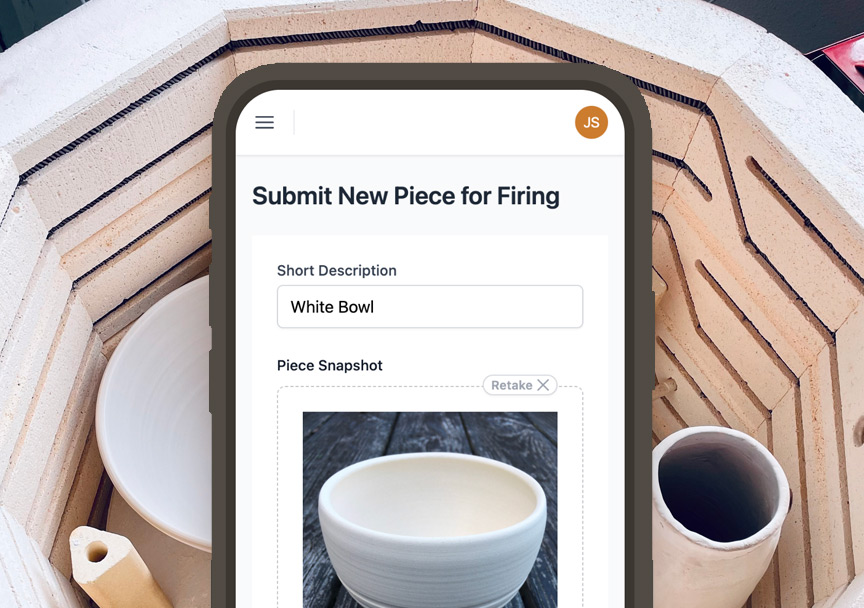Creating a successful community pottery studio is about more than just providing access to a kiln and a few pottery wheels. To truly thrive, a studio must cater to a variety of skill levels and interests, offering opportunities for beginners, hobbyists, and advanced ceramic artists alike.
By structuring your studio’s offerings to engage people at every stage of their pottery journey, you can create a welcoming environment that brings in new customers, retains long-term members, and fosters a strong sense of community.
Beginner-Friendly Events: One-Night Classes That Bring Newcomers In
One of the best ways to introduce people to your studio is by offering beginner-friendly, one-night classes. These events—such as a "Date Night Pottery" or "Try It Out Wheel Throwing" session—allow people to experience pottery without a long-term commitment.
Yes, it can be a lot of work to finish the pieces for them—trimming, glazing, and firing their work takes studio time and resources. However, the advantage is that these events often bring in people who might not have otherwise stepped foot in your studio. Many of them will fall in love with the craft and return for more in-depth classes or memberships.
To maximize success:
- Keep beginner classes simple and structured for fun, not perfection.
- Offer a variety of themes—couples’ nights, family-friendly events, and team-building workshops.
- Capture contact information so you can invite attendees back for future offerings.
Advanced Multi-Week Classes: Deepening the Connection
Once someone has been introduced to pottery, they may want to learn more about the full process—from centering clay to glazing and firing their own work. Offering structured, multi-week classes (typically 6–8 weeks) allows students to develop their skills in a more serious setting.
These classes help build a core community of returning students who invest in their craft. They also provide more predictable income for your studio compared to one-off events.
When designing multi-week courses:
- Offer both hand-building and wheel-throwing tracks to appeal to different interests.
- Create beginner and advanced levels so students can progress over time.
- Make sure students have access to open studio time between classes to practice.
Kids’ Classes & Camps: Engaging Young Artists and Parents
Another great way to bring in new customers is by offering kids' pottery classes and kids’ camps. Parents are always looking for creative activities for their children, and a pottery class is a unique, hands-on experience that many families will love.
Hosting after-school programs, weekend workshops, and summer camps can provide a steady stream of income while introducing entire families to your studio. Some parents may even decide to sign up for a class themselves after seeing how much fun their kids are having.
To make kids’ offerings successful:
- Keep class durations age-appropriate—shorter for younger kids, longer for teens.
- Offer seasonal camps (summer, winter break, spring break) to maximize attendance.
- Consider running "Parent & Child" pottery classes to engage families together.
Memberships: Creating Long-Term Studio Engagement
For those who truly fall in love with pottery, a membership program can be the perfect way to keep them engaged. However, one mistake many studios make is offering a one-size-fits-all membership.
Some members only need occasional access—perhaps a few hours a week to work on their projects—while others will want unlimited access to the studio, especially if they are creating work to sell. To accommodate different needs, consider offering tiered membership levels:
- Casual Membership: A lower-cost option for hobbyists who only need a few hours per week.
- Standard Membership: A mid-tier option with more access, potentially including storage space.
- Unlimited Membership: A premium option that allows for 24/7 access, ideal for professional artists.
This flexibility allows you to attract a wider range of members while ensuring that heavy-use members are paying a fair price for their level of access.
Specialty Workshops: Expanding Your Offerings for Niche Interests
Beyond regular classes and memberships, hosting specialty workshops is another way to bring in new business and excite your existing members. These workshops can be topic-based or project-based, offering something fresh for your community. Check out our list for some themed pottery class ideas.
Popular specialty workshops might include:
- Raku Firing: A dramatic firing process that produces unique crackled glaze effects.
- Sculptural Ceramics: Teaching students how to create figurines, animals, or other sculptural pieces.
- Themed Projects: Workshops where students make specific items, such as ceramic flowers, mugs, or lanterns.
These short-term, focused classes appeal to both beginners and experienced potters, helping your studio attract a diverse audience.
A Well-Rounded Studio Leads to Growth
A thriving community pottery studio doesn’t rely on just one type of offering—it embraces a variety of events, classes, and memberships to meet people wherever they are in their pottery journey.
- One-night beginner classes introduce new people to your studio.
- Multi-week courses develop skills and create long-term students.
- Kids’ classes and camps bring in families and future potters.
- Tiered memberships ensure a sustainable community of regular users.
- Specialty workshops provide fresh, exciting experiences for all levels.
By offering multiple ways for people to engage with your studio, you not only bring in new customers but also create a space where they can grow and evolve as artists. This diversity in offerings is the key to a successful, sustainable pottery studio.
Kiln Fire Can Help Your Pottery Studio Thrive
Managing class sign-ups, memberships, and events can be overwhelming, but Kiln Fire makes it easy. Kiln Fire is built specifically for community pottery studios, helping you sell classes, manage memberships, and streamline your operations. Whether you're running one-night classes, multi-week courses, or specialty workshops, Kiln Fire gives you the tools you need to organize and grow your studio.
Want to make running your pottery studio easier? Learn more about Kiln Fire today!


